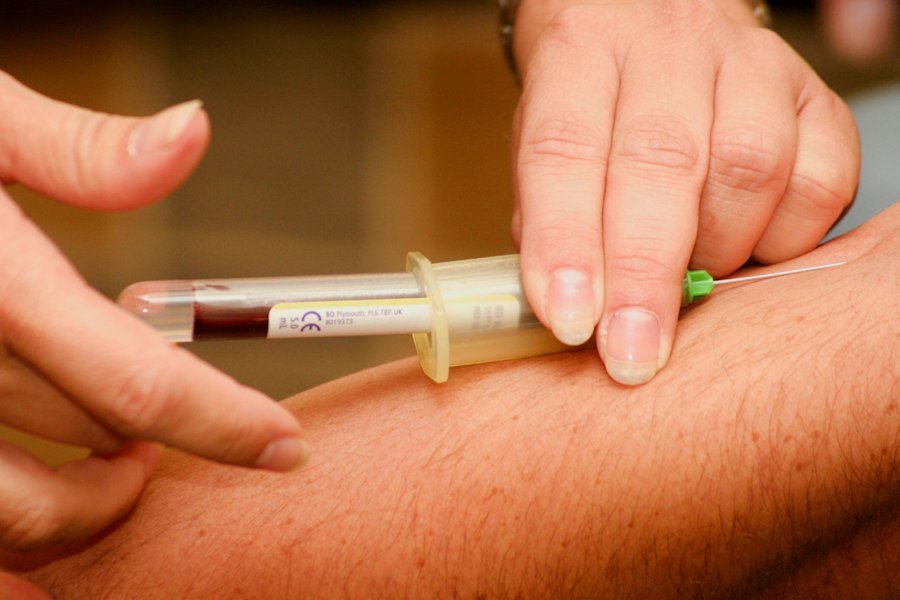

Healthcare in England: Medical Vocabulary
Medical vocabulary plays a crucial role in the field of healthcare. It is the language used by healthcare professionals to communicate with each other and with patients. Without a solid understanding of medical terminology, effective communication and accurate diagnosis and treatment would be nearly impossible. Medical vocabulary encompasses a wide range of terms, from basic anatomy and physiology terms to complex disease and treatment terminology. In this article, we will explore the different aspects of medical vocabulary and its importance in the healthcare industry.
Effective communication is essential in healthcare, as it ensures that patients receive the appropriate care and treatment. Medical vocabulary allows healthcare professionals to accurately describe symptoms, conditions, and treatments, enabling them to provide accurate information to patients. It also helps in conveying complex medical concepts in a clear and concise manner. For example, a doctor may use medical terminology to explain a diagnosis to a patient, ensuring that they understand the condition and its implications.
Table of Contents
ToggleBasic Medical Terminology
Medical terminology is built upon prefixes, suffixes, and root words. Understanding these components is crucial for deciphering the meaning of medical terms. Prefixes are added to the beginning of a word to modify its meaning, while suffixes are added to the end. Root words are the core of a term and provide its basic meaning.
For example, let’s break down the term “cardiologist.” The root word is “cardio,” which refers to the heart. The suffix “-logist” means someone who studies or specializes in a particular field. Therefore, a cardiologist is a healthcare professional who specializes in the study and treatment of heart conditions.
Other examples of basic medical terms include “dermatology” (the study of skin), “neurology” (the study of the nervous system), and “gastroenteritis” (inflammation of the stomach and intestines).
Anatomy and Physiology Terms
Anatomy and physiology terms are used to describe the human body and its functions. These terms are essential for healthcare professionals to accurately communicate about the body’s structures and how they work. Understanding anatomy and physiology terminology is crucial for diagnosing and treating medical conditions.
Some common anatomy terms include “anterior” (front of the body), “posterior” (back of the body), “superior” (above or higher), and “inferior” (below or lower). Physiology terms describe the functions of different body systems, such as “respiration” (the process of breathing), “circulation” (the movement of blood through the body), and “digestion” (the breakdown of food in the body).
Disease and Illness Vocabulary
Disease and illness vocabulary is used to describe different medical conditions. These terms are essential for healthcare professionals to accurately diagnose and treat patients. Understanding disease and illness vocabulary allows healthcare professionals to communicate effectively with each other and with patients, ensuring that everyone is on the same page regarding a patient’s condition.
Some common disease and illness terms include “diabetes” (a chronic condition characterized by high blood sugar levels), “hypertension” (high blood pressure), “pneumonia” (an infection that inflames the air sacs in one or both lungs), and “cancer” (a group of diseases characterized by the uncontrolled growth and spread of abnormal cells).
Medical Procedures and Treatments
Medical procedure and treatment vocabulary is used to describe various medical interventions, such as surgeries, tests, and therapies. These terms are crucial for healthcare professionals to communicate about the specific procedures or treatments a patient may need.
Some common medical procedure and treatment terms include “biopsy” (the removal of a small sample of tissue for examination), “radiation therapy” (the use of high-energy radiation to kill cancer cells), “MRI” (magnetic resonance imaging, a diagnostic test that uses powerful magnets and radio waves to create detailed images of the body), and “physical therapy” (a treatment method that helps restore function, improve mobility, and relieve pain).
Medication and Prescription Vocabulary

Medication and prescription vocabulary is used to describe different types of medications, their uses, and dosages. Understanding medication and prescription terminology is crucial for healthcare professionals to accurately prescribe and administer medications.
Some common medication and prescription terms include “antibiotic” (a medication used to treat bacterial infections), “analgesic” (a pain-relieving medication), “dosage” (the amount of medication to be taken at a given time), and “contraindication” (a specific situation in which a drug should not be used).
Mental Health Terminology
Mental health terminology is used to describe different mental health conditions and treatments. Understanding mental health terminology is crucial for healthcare professionals working in the field of psychiatry or providing mental health services.
Some common mental health terms include “depression” (a mood disorder characterized by persistent feelings of sadness and loss of interest), “anxiety” (a mental health disorder characterized by excessive worry or fear), “psychotherapy” (talk therapy that helps individuals understand their thoughts, feelings, and behaviors), and “antidepressant” (a medication used to treat depression).
Healthcare Professions and Job Titles
Healthcare professions and job titles encompass a wide range of roles within the healthcare industry. Understanding these job titles is essential for healthcare professionals to collaborate effectively with colleagues from different disciplines.
Some common healthcare professions and job titles include “physician” (a medical doctor who diagnoses and treats diseases), “nurse” (a healthcare professional who provides direct patient care), “pharmacist” (a healthcare professional who dispenses medications), and “radiologist” (a medical doctor who specializes in interpreting medical imaging tests).
Medical Abbreviations and Acronyms
Medical abbreviations and acronyms are used to save time and space when documenting patient information or communicating with colleagues. However, it is crucial to use these abbreviations correctly and ensure that everyone involved understands their meaning.
Some common medical abbreviations and acronyms include “CPR” (cardiopulmonary resuscitation), “MRI” (magnetic resonance imaging), “BP” (blood pressure), and “CBC” (complete blood count).
English Language Classes for Healthcare Professionals
English language proficiency is crucial for healthcare professionals, especially those working in English-speaking countries or with patients who speak English as their first language. Effective communication is essential for accurate diagnosis, treatment, and patient care.
There are various resources available for healthcare professionals to improve their English language skills. Online courses, language exchange programs, and specialized English classes for healthcare professionals can help individuals enhance their vocabulary, grammar, and communication skills.
Medical vocabulary is a fundamental aspect of healthcare. It allows healthcare professionals to communicate effectively with each other and with patients, ensuring accurate diagnosis, treatment, and patient care. From basic medical terminology to complex disease and treatment vocabulary, understanding medical terminology is crucial for healthcare professionals in all disciplines. Continuous learning and improvement of medical vocabulary skills are essential for healthcare professionals to provide the best possible care to their patients.
If you’re interested in expanding your medical vocabulary, check out this related article on Healthcare in England: Medical Vocabulary. It provides a comprehensive list of essential medical terms and phrases that are commonly used in the healthcare industry in England. Whether you’re a healthcare professional or simply looking to improve your understanding of medical terminology, this article is a valuable resource. Click here to read more about it.
FAQs
What is healthcare in England?
Healthcare in England refers to the system of medical care provided to residents of England by the National Health Service (NHS).
What is the National Health Service (NHS)?
The National Health Service (NHS) is the publicly funded healthcare system in England. It provides medical care to all residents of England, regardless of their ability to pay.
What is medical vocabulary?
Medical vocabulary refers to the specialized language used by healthcare professionals to describe medical conditions, treatments, and procedures.
Why is medical vocabulary important?
Medical vocabulary is important because it allows healthcare professionals to communicate effectively with each other and with patients. It ensures that everyone involved in a patient’s care is using the same terminology and understands the medical information being shared.
What are some common medical terms used in England?
Some common medical terms used in England include “GP” (general practitioner), “A&E” (accident and emergency), “NHS” (National Health Service), “prescription,” “consultant,” and “hospital.”
What is a GP?
A GP, or general practitioner, is a primary care physician who provides medical care to patients in the community. GPs are often the first point of contact for patients seeking medical care.
What is A&E?
A&E, or accident and emergency, is the department of a hospital that provides immediate medical care to patients with serious or life-threatening injuries or illnesses.
What is a prescription?
A prescription is a written order from a healthcare professional, such as a doctor or nurse, for a medication or medical device to be dispensed to a patient.
What is a consultant?
A consultant is a senior healthcare professional who specializes in a particular area of medicine. Consultants often work in hospitals and provide specialized medical care to patients with complex medical conditions.
If you want to learn Norwegian, you can register for classes here. We look forward to hearing from you and helping you become fluent in Norwegian.





